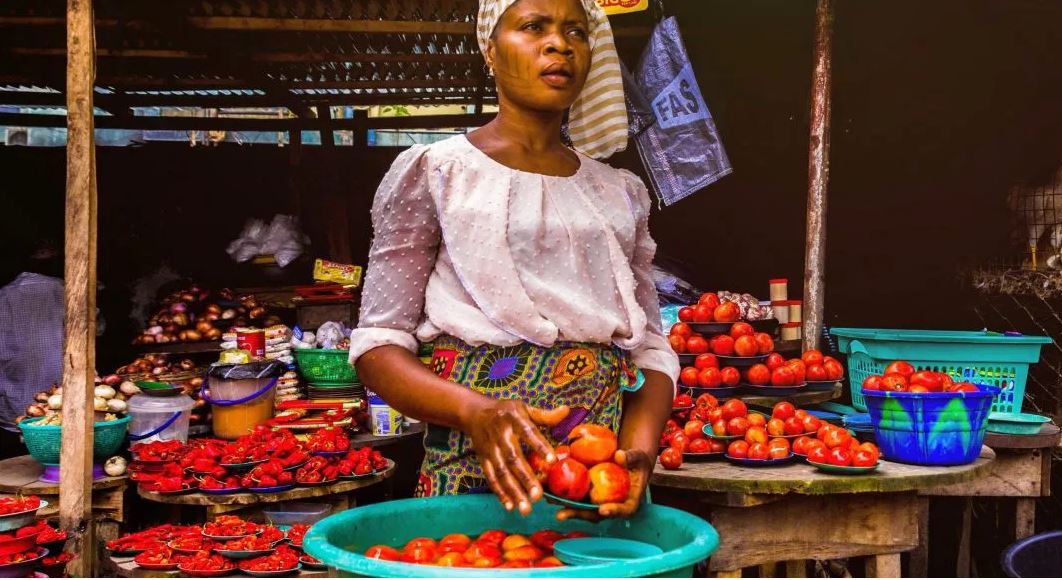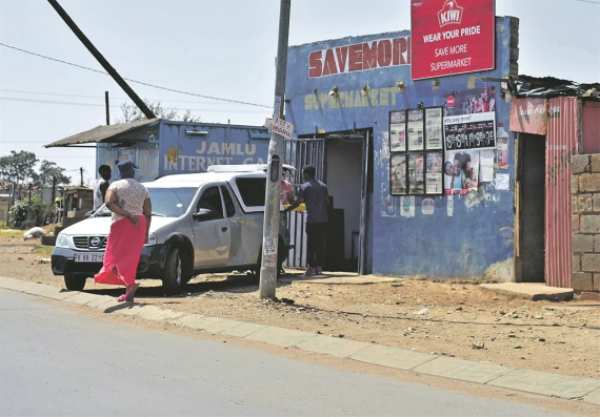With millions facing hunger due to the covid-19 nationwide lockdown, ‘pot slaughterings’ and crop thefts are becoming more prevalent.
With millions facing hunger, ‘pot slaughterings’ and crop theft becoming more prevalent
Coming on top of a reality where millions of South Africans were unemployed even before the start of the covid-19 crisis, the extension of lockdown regulations that make informal trade all but impossible creates an extremely dangerous situation in Mzansi, experts warn.
The agricultural sector has already started feeling the impact of this, with “pot slaughterings” of livestock and crop thefts reported in various parts of the country.
According to professor Andries du Toit, director of the Institute for Poverty, Land and Agrarian Studies (PLAAS), 40% of the South African population are essentially either unemployed or in the informal sector and the lockdown extension could be detrimental to their livelihoods.
Du Toit explains that the unemployed make up 40% of the population, but they only receive 10% of the country’s income. “That’s 20 million people who are all living below the poverty line. They were living below the poverty line before the crisis. They were already often going hungry or not having enough money to buy food and pay for transport. What the lockdown is doing is shutting off all their access to income other than what they were receiving through social grants. So, it’s an enormous shock to all of them.”
“When we talk about the unemployed, we are talking about everybody who doesn’t have a steady job in the formal economy – people who are landless and people who are employed in the informal economy. For example, domestic workers, people who are running spaza shops and street vendors. Those are the people who are negatively affected by this,” du Toit says.

Andries du Toit, director of the Institute for Poverty, Land and Agrarian Studies (PLAAS).
Bukelwa Mbuli (54), a fruit and vegetable vendor from Khayelitsha in Cape Town, says the lockdown has made it nearly impossible for her to feed her family. “I haven’t been able to put food on the table for my children or take care of my responsibilities,” Mbuli says. She explains that some of her colleagues are single parents and they don’t know how they will survive this during this lockdown.
Du Toit believes a lot of people are upset about the lockdown extension, because initially they thought they could handle it and they didn’t think it would be extended this long. Even though the president introduced increases to social grants, it won’t be enough to sustain them.
The easing of lockdown restrictions to level 4 from this Friday still won’t allow large numbers of people to return to work. People who are working in service industries, domestic workers and people who work in so–called non-essential services are still going to be stuck at home.
Desperate times calls for desperate measures
Du Toit believes the financial relief measures proposed are not nearly enough to meet the needs. He predicts that people are going to feel the need to take the law into their own hands and resort to desperate measures. “When people feel like they have no option, they loot shops and spaza shops. And that creates a situation where there is a generalised break in law and order which is not going to help to keep us safe from the virus.”
Scattered incidences of the looting of stores have been reported from around the country, and farmers have also borne the brunt of what looks like the desperate acts of hungry people.
Chairperson of the Northern Transvaal Agricultural Union of South Africa (TLU SA), Henk van de Graaf.
According to the chairperson of the Northern Transvaal Agricultural Union of South Africa (TLU SA), Henk van de Graaf, farmers across South Africa are reporting thefts of their agricultural products since the lockdown started a month ago.
The Limpopo and Free State provinces seem to be the hardest hit by thieves who are stealing livestock, crops and cables. “What we have witnessed on the farms are ‘pot slaughterings’, thieves slaughtering livestock on the farms and running away with meat,” Van der Graaf says.
Crop theft has also been reported and is currently “big at the moment,” because maize is nearing harvest season. Thieves are attacking farms in large numbers and are taking “bakkies full” of crops. Farmers can’t defend themselves, because they are usually outnumbered.
Van der Graaf explains that these thefts are not executed by syndicates. Syndicates normally steal in large quantities and they would load stolen goods on trucks and transport them to other provinces to be auctioned.
Poverty and hunger go hand-in-hand
Dr Piet Croucamp, senior lecturer of political studies and international relations at North West University explains that poverty and hunger go hand–in–hand in South Africa. “If you have 3.4 million people unemployed it is very possible that a large percentage of those people will go hungry, because some of them will probably rely on grants and some of them fall under the informal economy. So, it is [inevitable] that there is a large degree of hunger,” he says.
According to Croucamp the best possible way to alleviate hunger is to ensure that people are employed, or they employ themselves or become part of the informal economy. He explains that the formal economy is very saturated, and it is unlikely that it will create new jobs if it has low levels of economic growth. The second option is to allow people to become part of the informal economy where they can become small-scale entrepreneurs or small-business owners, or just general traders.
Dr Piet Croucamp, senior lecturer of political studies and international relations at North West University.
“If it’s easier for people to do that, it might address some hunger concerns. The lockdown does absolutely nothing for people who are unemployed and who rely on the informal economy. Around 10 million people in SA work for the informal economy and they only eat today if they worked yesterday. This includes car guards, beggars and people who sell things on the streets”
Croucamp further explains that the idea of the lockdown is to create social distancing between people, but there is no social distancing for people in the informal sectors and high-density areas. The government is trying to enforce the lockdown which impoverishes these people further.
What could further exacerbate this, according to Andries du Toit, is the likelihood of food prices inflating. This is because the local and international lockdowns disrupt the supply chains of supermarket, shops and production systems.
He explains the food prices are likely to inflate as palm oil imports of soya are going to be more expensive, staples are more likely to become expensive so the situation facing poorer and marginalised areas in South Africa is a truly frightening one and it is a pity that government has not taken bolder steps.
Du Toit explains that food prices are likely to inflate as palm oil imports of soya are going to be more expensive, likely causing staples to become more expensive. The situation facing poorer and marginalised areas in South Africa is a truly frightening one, and it is a pity that government has not taken bolder steps.
Article Source: https://www.foodformzansi.co.za/informal-trade-lockdown-creating-explosive-situation/







